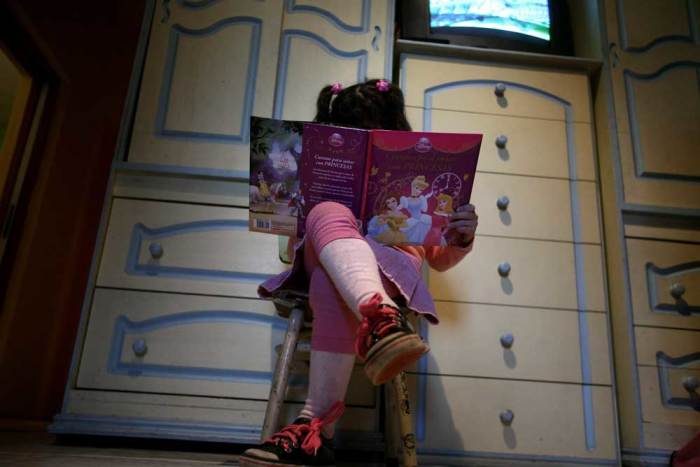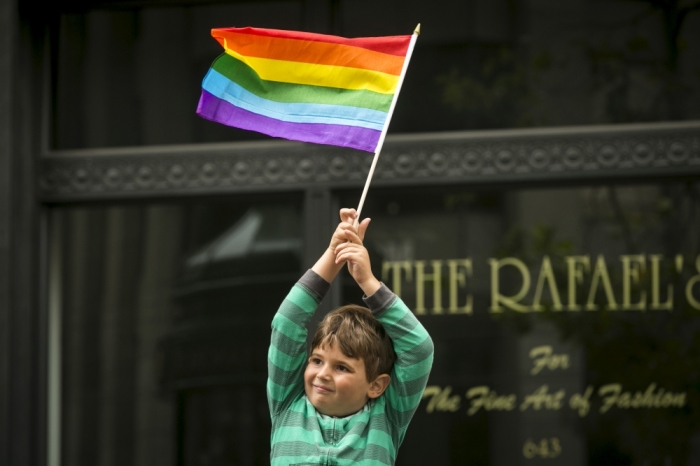5-Y-O Child Given OK to Start Sex Change in Australia

An Australian court has approved a controversial parental request to allow a 5-year-old child, born male but described as intersex in media reports, to undergo gender reassignment surgery and identify as female.
BBC News reported that the child is known only as Carla, and identifies as a girl despite lacking female sex organs.
The Family Court was reportedly told that Carla was born with "female-appearing genitalia" and exhibited "stereotypically female" behavior, such as never wanting to be referred to as a male, and preferring "female toys, clothes and activities."
A surgery will now be performed to remove the gonads from inside the child's body. Medical experts reportedly testified in court that the surgery would remove the risk for the child developing tumours, and suggested that the surgery should take place before puberty.

Family Court Judge Colin Forrest said in his decision, according to the BBC, "I consider the proposed medical treatment 'therapeutic' as being necessary to appropriately and proportionately treat a genetic bodily malfunction that, untreated, poses real and not insubstantial risks to the child's physical and emotional health."
Even some intersex campaigners have questioned the ruling, however, with one advocate, named Morgan Carpenter, arguing that children need to be older to make important decisions about their identity.
"Gender assignment is always appropriate," Carpenter told BBC. "What is not appropriate is surgically enforced gender assignment."
Controversial stories of children being allowed to chose their gender have been reported on several occasions this past year.
In June The Christian Post reported that according to the Australian newspaper The Daily Telegraph, the NSW Department of Education revealed that the child is the youngest person in the country to be in the process of transitioning genders for eventual gender reassignment.
Hospitals in Australia have reported increases in the number of children being referred for gender dysphoria.
Psychologist Michael Carr-Gregg told the Daily Telegraph that as many as 250 children as young as 3 years old are being helped by the gender dysphoria unit at Melbourne's Royal Children's Hospital. By comparison, he added that there was just one child being assisted for gender dysphoria issues at the hospital just a decade ago.
According to a doctor at The Children's Hospital at Westmead, referrals for gender services have tripled in recent years and have "escalated rapidly" across every state.
In a report published in August, the American College of Pediatricians stated that using public education and legal policies to "endorse gender discordance as normal" will lead to more children turning to "gender clinics," where they will be given puberty-blocking drugs."
"This, in turn, virtually ensures that they will 'choose' a lifetime of carcinogenic and otherwise toxic cross-sex hormones, and likely consider unnecessary surgical mutilation of their healthy body parts as young adults," the report stated.
A recent report published by two scholars from Johns Hopkins University in Maryland argued that there is not enough scientific evidence to claim that transgender children are born that way. Additionally, the report argues that it is immoral for adults to condition transgender children to believe that they are actually members of the opposite biological sex and to push them into receiving hormone treatment.
The report cited the fifth edition of American Psychiatric Association's Diagnostic and Statistical Manual of Mental Disorders in its effort to prove that gender dysphoria in children does not often persist into adulthood.
"In natal [biological] males, persistence [of gender dysphoria] has ranged from 2.2 to 30 percent," the report explains. "In natal females, persistence has ranged from 12 to 50 percent. Scientific data on persistence of gender dysphoria remains sparse due to the very low prevalence of the disorder in the general population, but the wide range of findings in the literature suggests that there is still much that we do not know about why gender dysphoria persists or desists in children."





























